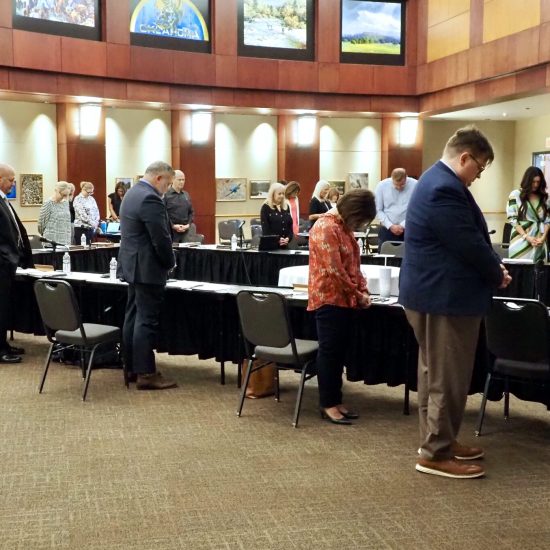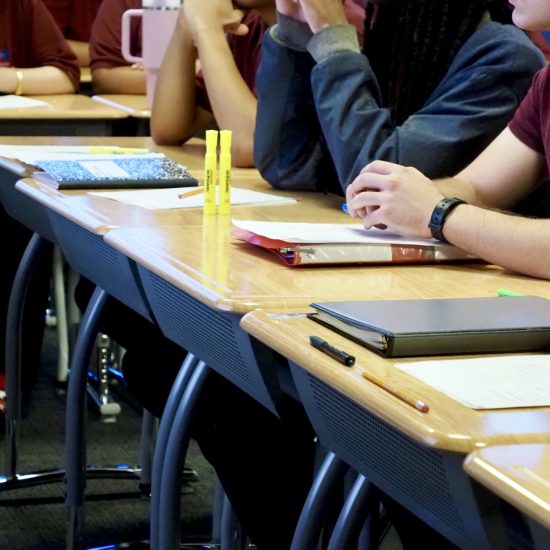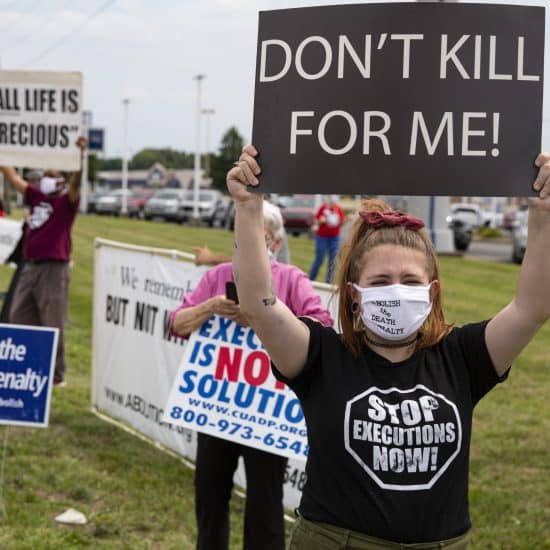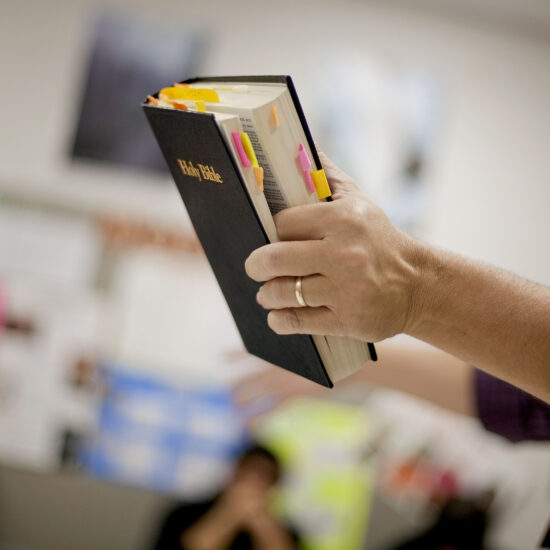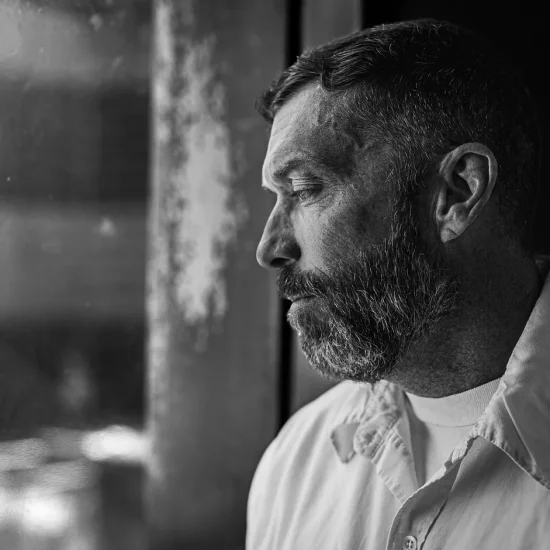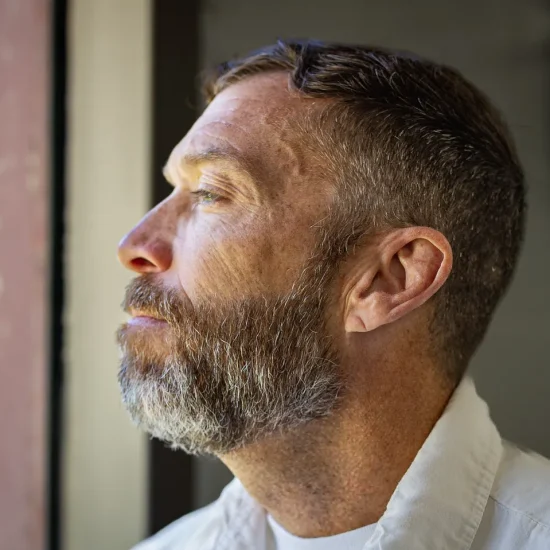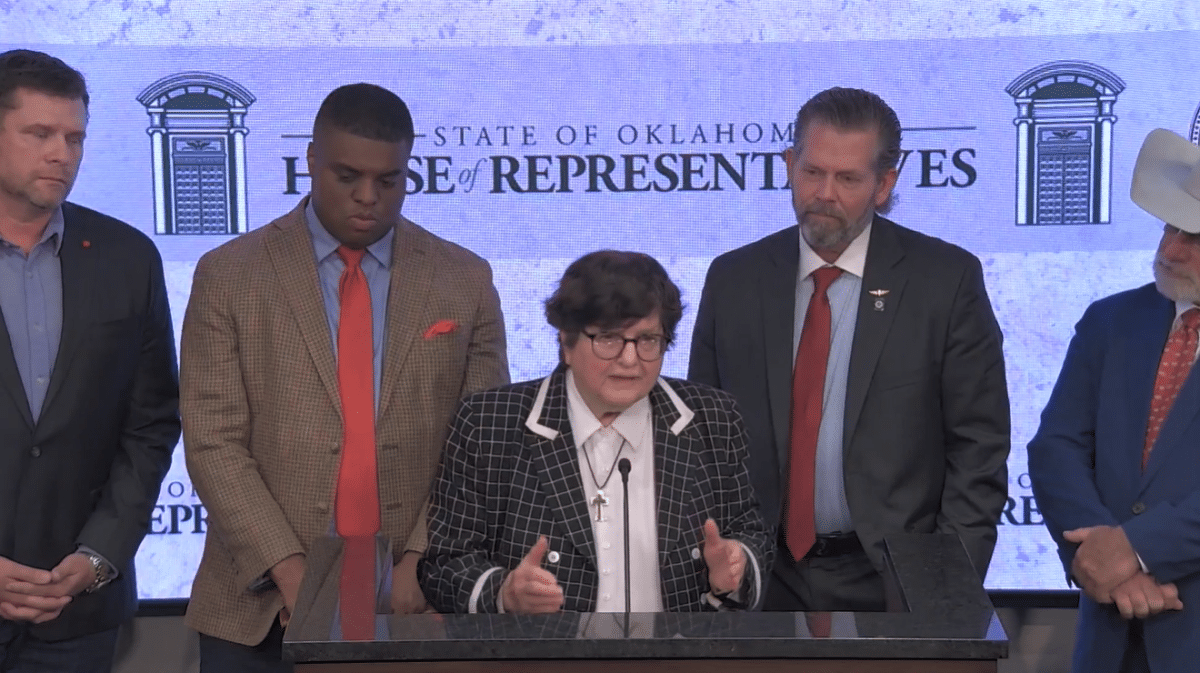
On Thursday (May 4), a diverse group of clergy spoke at a press conference at the Oklahoma Capitol to urge a stop to the execution of Richard Glossip. The scheduled execution on May 18 is the 10th date set for Glossip, and on three occasions the reprieve came so late he had already been served his “last meal.” Clergy and politicians spoke out Thursday as part of a growing chorus of those who believe Glossip is innocent.
“This is not a partisan conversation. This is a moral conversation about how we will treat one another as human beings,” said John-Mark Hart, a Baptist pastor in Oklahoma City. “We have grave concerns about a system that is so broken that there is a very strong possibility of executing innocent people. We have concerns about the death penalty because of mercy, but we also have concerns because of justice.”
On Jan. 7, 1997, Justin Sneed used a baseball bat to kill Barry Van Treese. In exchange for a deal that let him avoid the death penalty, Sneed testified that Glossip ordered the killing. Glossip’s first conviction was thrown out by an appeals court in 2001. But a second conviction is also questioned by many over concerns about the credibility of Sneed, prosecutorial behavior, and evidence withheld from defense attorneys.
His execution has been stayed multiple times since 2014, largely over questions about what drugs Oklahoma is using for lethal injections. Amid new investigations and hearings in recent months, Oklahoma Attorney General Gentner Drummond, a Republican, last month sought to vacate Glossip’s conviction, but the appellate court denied that motion. In an unusual move, he has now joined defense attorneys in asking the U.S. Supreme Court to issue a stay of execution. Other politicians are also calling for a reprieve.
“This case is no longer about justice; it’s about power, pride, and politics,” said Republican State Rep. Kevin McDugle, who added that when Glossip is freed from jail, “it’s going to literally be a miracle of God.”
McDugle invited various ministers to also speak at the press conference that was livestreamed by the Oklahoma House of Representatives. Most of the clergy were local ministers, but they were also joined by Helen Prejean, a Catholic nun famous for her advocacy against the death penalty who was played by Susan Sarandon in Dead Man Walking. She talked about the problems with the conviction and the ways Glossip has been treated in prison ahead of multiple execution dates.
“Who does not recognize that this is cruelty? What keeps us from seeing that?” Prejean exclaimed as she slapped the podium. “We’re talking about conscience. We’re talking about being human. … This is about us as a people, and we’re better than this.”
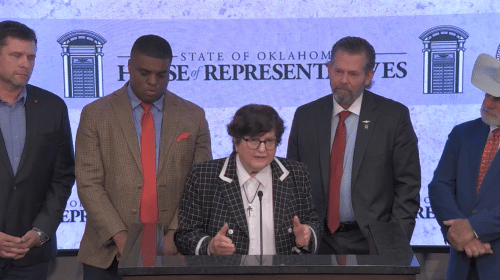
Screengrab as Sister Helen Prejean speaks during a press conference at the Oklahoma Capitol on May 4, 2023.
Demetris Minor, a minister who leads Conservatives Concerned About the Death Penalty, argued, “Going forward with this execution only continues a cycle of violence rather than honors life.” In addition to urging the governor and the state legislature to intervene in Glossip’s case, Minor also called for a moratorium on executions in the state.
“How many Richard Glossips have to get our attention for us to finally realize that this system is ineffective? This system is unjust. It is a failed policy for everyone,” Minor added. “As a pro-life Christian, my faith compels me to advocate for the totality of life.”
Similarly, Bryan Brooks, a Catholic priest in Broken Arrow, talked about the value of the lives of those murdered and those sentenced to die like Glossip. Referring to the teachings and witness of Jesus — who Brooks noted was “falsely accused, convicted, and executed” — the priest urged Oklahomans to practice mercy.
More rallies and efforts are planned in the coming days to push Gov. Kevin Stitt, state lawmakers, and judges to stop the execution and vacate the charges against Glossip. If executed, Glossip would be the 12th person put to death in the U.S. this year and the second in Oklahoma.

